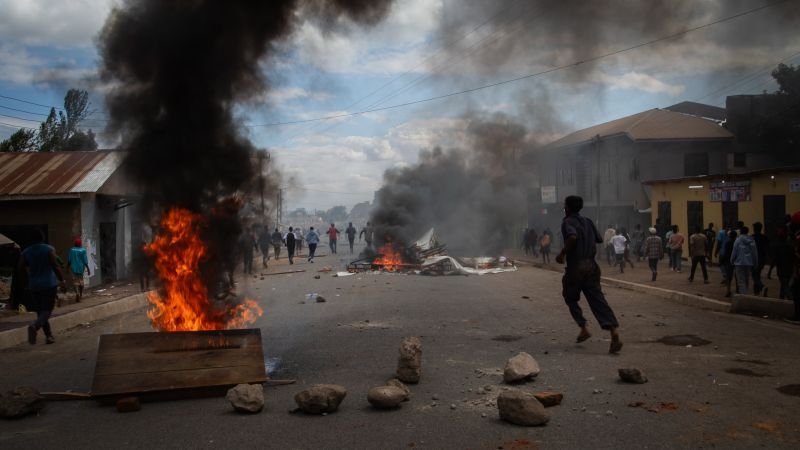Experts have warned of a possible outbreak of livestock disease that might be triggered by the anticipated El Niño rains.
They say the rain might cause flooding, which is a driver to disease outbreak.
Kenyans have been warned against getting into contact with sick animals to avoid spread of the Rift Valley Fever (RVF) disease.
Veterinary Services deputy director Jane Njuguna however assured the public that the government is well-prepared for any eventualities associated with the El Niño rains.
"So far, there is a stock of about two million doses of RVF vaccines at the Strategic Reserve at the Kenya Veterinary Vaccines Production Institute (KEVEVAPI)," she said.
Njuguna was speaking during the media training on reporting Rift Valley Fever. The meeting held in Naivasha was organised by the Food and Agriculture Organisation of the United Nations (FAO).
Njuguna said some counties including Isiolo have started early vaccination on RVF incase of disease outbreaks.
"We are also doing outreaches and creating awareness to the public in addition to disease surveillance in the risky counties," she added.
"The government is prepared and there is no crisis," she said.
Dr Matthew Muturi, an epidemiologist at the Zoonotic Disease Unit said people should avoid consuming uninspected meat or meat that is not from a slaughterhouse to avoid contracting zoonotic diseases.
The Kenya Meteorological Department has warned of El Niño in the October-November-December short rains.
He said there are two types of possible outbreaks during El Niño- waterborne and vector borne diseases.
Waterborne diseases include cholera and typhoid while vectorborne diseases are those that result from mosquitoes.
"When flooding occurs, the mosquito population goes up. Advanced rainfall brings about flooding which increases mosquito population hence disease outbreaks," Muturi explained.
He said there is a need for public health education and awareness to curb the outbreaks.
The public should know how to control mosquito population by relocating to higher areas for those living in areas prone to floods.
"Kenyans should avoid contact with sick animals and avoid consumption of un-inspected meat products. If you are assisting animals in giving birth, observe strict hygiene practices," Muturi said.
"There should be early notification of human and animal health workers in the event of an outbreak."
Muturi said farmers should ensure animals are vaccinated against RVF.
Although most of the high risk areas of RVF are in Northeastern and upper Eastern areas, all areas that have excessive flooding and support high numbers of mosquitoes are at risk of RVF outbreaks.
The prone counties include Wajir, Garissa, Tana River, Marsabit, Isiolo, Baringo, Murang'a, Kilifi, Nyandarua and Samburu.
RVF is a vector-borne disease spread by mosquitoes.
Symptoms in livestock include mass abortion and death of young livestock.
In humans, the symptoms include flu-like illnesses, it can also affect the eyes, which is characterised by blindness and blurred vision.
It can also affect the brain which is characterised by hallucination and coma or can also result in bleeding.
Muturi added that the national government is putting in place efforts to improve the capacity for the preparedness and response in the event of an outbreak.
"They are working with County government in some of the prone areas to improve to improve the capacity to prevent the disease," said Muturi.
















